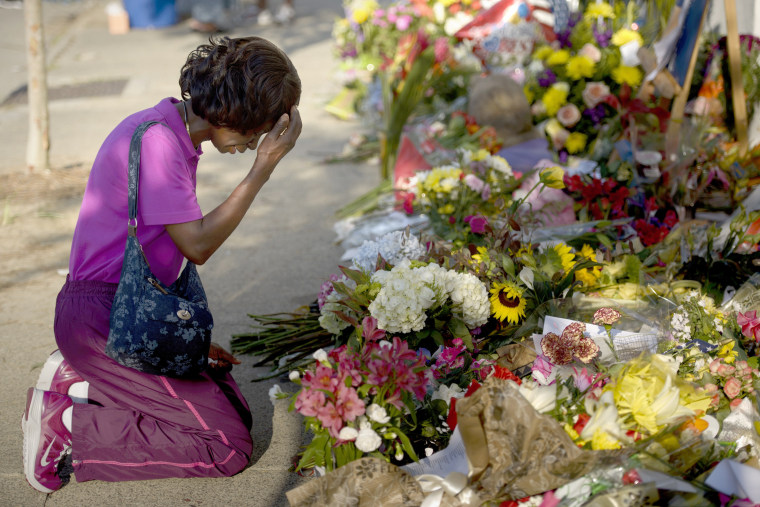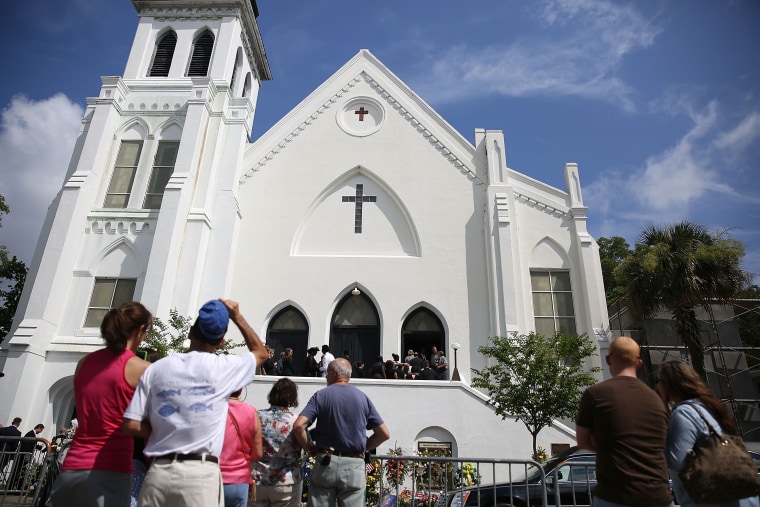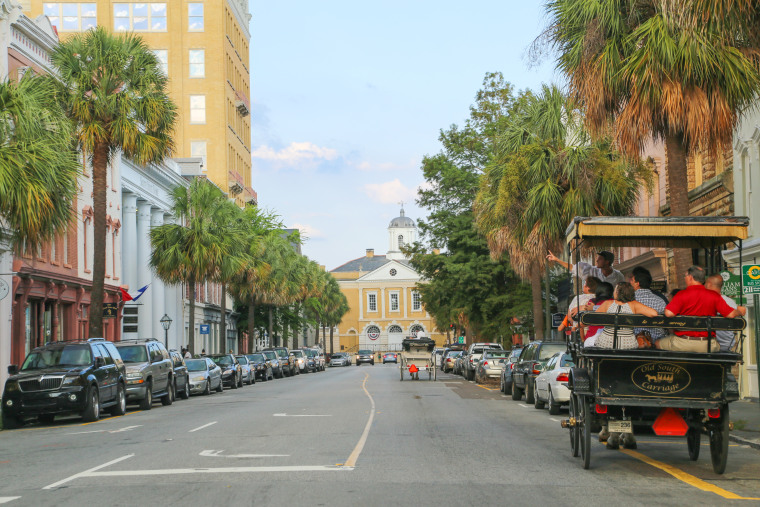There is one thing about Charleston, South Carolina that is indisputable—the architecture mixed with the Palmetto lined streets are absolutely charming.
I’ll be honest, as a black woman from the Northeast; the “charms” of the Deep South have always been lost on me.
While countless friends have regaled me with stories of beautiful white sand beaches, unwavering hospitality and magical sunsets, all I could think about were the “sunset towns”, where if you were black and caught in certain parts of an all white area of town after sunset — you were as sure as dead.
Sure, a lot has changed in this part of the country—to be fair the “whites only” signs are long gone; but the sentiments of separatism and prejudice still permeate the air as much as the scent of boiled peanuts, and the longtime black residents I had a chance to chat with while I was there agreed.
Charleston has been in the headlines a lot lately, and not because of its stellar cuisine or sightseeing, but instead for the traits for which this country has tried to ignore, but can’t deny—racism.

The shooting death caught on video of Walter Scott being shot in the back by a police officer followed by the terrorist attack against Mother Emanuel Church that left nine people dead including an 87-year-old parishioner and State Senator as well as the church’s Reverend, Clementa Pinckney, have once again made Charleston a hot-bed of racial tension.
With South Carolina being the third state to vote in the primaries — and early voting beginning at the end of this month — it made sense that the first democratic presidential debate of 2016 would take place here over the Dr. Martin Luther King holiday.
I was honored and privileged to receive a ticket to the debate, but to say I was a bit on edge, at the thought of watching the first democratic presidential debate live and in person in the Deep South, given all that has transpired as of late, would be a severe understatement.
“That flag coming down was nice but it didn’t do a thing to change anything else around here.”
It turned out that attending the debate wasn’t the high point of my short stay in Charleston, but instead the opportunity to chat with locals while watching the annual MLK Day Parade march down King street and end in front of Mother Emmanuel Church on Monday.
What struck me about the parade wasn't so much the singing and dancing and the pleasant exchanges of “Happy King Day” from floats on high, but the overwhelming absence of white attendees.
An older black woman who seemed to know everyone in and out of the parade seemed to notice that I wasn’t a local and asked what brought me to town. I told her the debate. She went on to tell me that she too had attended the debate representing her family, who’d lost not one, but three members of her family during the white supremacist terrorist attack on Mother Emmanuel. I was stunned.
My mind flooded with shock, sadness and a bevy of questions at her admission.
Without provocation she went on to explain that she was disappointed with the debate and that she thought more would have been said not only about race relations and gun violence but of the housing crisis in South Carolina — which for blacks never rebounded after the recession.
She talked about the swath of new condominiums being built on the waterfront where low-income housing once stood until as she said, “the government came in and told us the soil was toxic and then demolished our homes.”
Then there was the taxi driver I met, a retired army veteran, who asked me how my stay was while driving me back to the airport. I responded with “hmmm, different.”
He pressed me for more info and I told him I didn’t feel quite comfortable and that looming underneath the cheerful grins in my direction seemed to be distance. His response, “ah, you felt it.”

He’d lived in Charleston all his life and told me that the “separateness” had always been there. He said, that it wasn’t until the late 1970s when black people were allowed to cross Calhoun Street, the street in front of my hotel, the Francis Marion. He also asked if I noticed that there were no black people in the restaurants I had visited—not even as staff, “they keep people like us in the back”, he lamented.
Present day Charleston is representative of the two America’s we have always been.
While white residents and visitors alike express how wonderful the city of Charleston is, the black residents speak of a different truth. Their truth not only steeped in history but the hurt and betrayal of the present. When I asked the family member of the slain Mother Emanuel worshippers how she felt about the Confederate flag coming down she said, “that flag coming down was nice but it didn’t do a thing to change anything else around here.”
Symbolic actions of togetherness are great—but the real question is what we will do about the very real segregation of opportunity and access that still exist among all those pretty buildings and Palmettos. Sadly none of the democratic candidates we watched on Sunday were any closer to giving her or anyone else in Charleston or elsewhere an answer.
The event, which took place just a few blocks away from Mother Emanuel, was hosted by the Congressional Black Caucus Institute and was supposed to focus on issues facing the black the community, fell short.
While the family members of the slain victims of Mother Emanuel as well as Trayvon Martin’s mother were recognized for their attendance, the questions presented to the candidates did little to dig into their policy platforms on criminal justice reform, predatory lending, education reform, housing etc.
On the eve of MLK Day in Charleston, South Carolina just months after a terror attack rocked the black community there I expected more as did the some of the family members of the Emanuel Nine.

